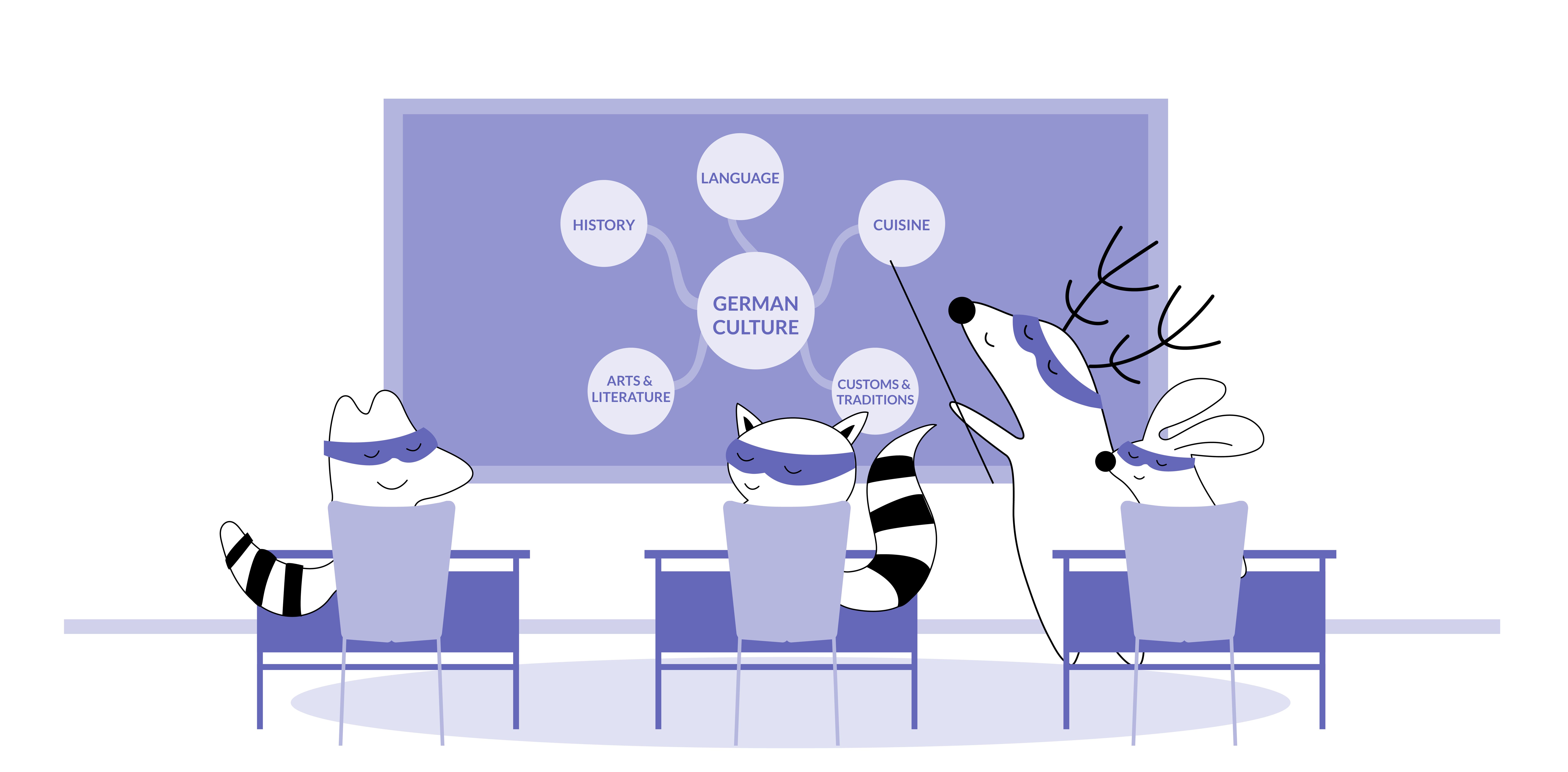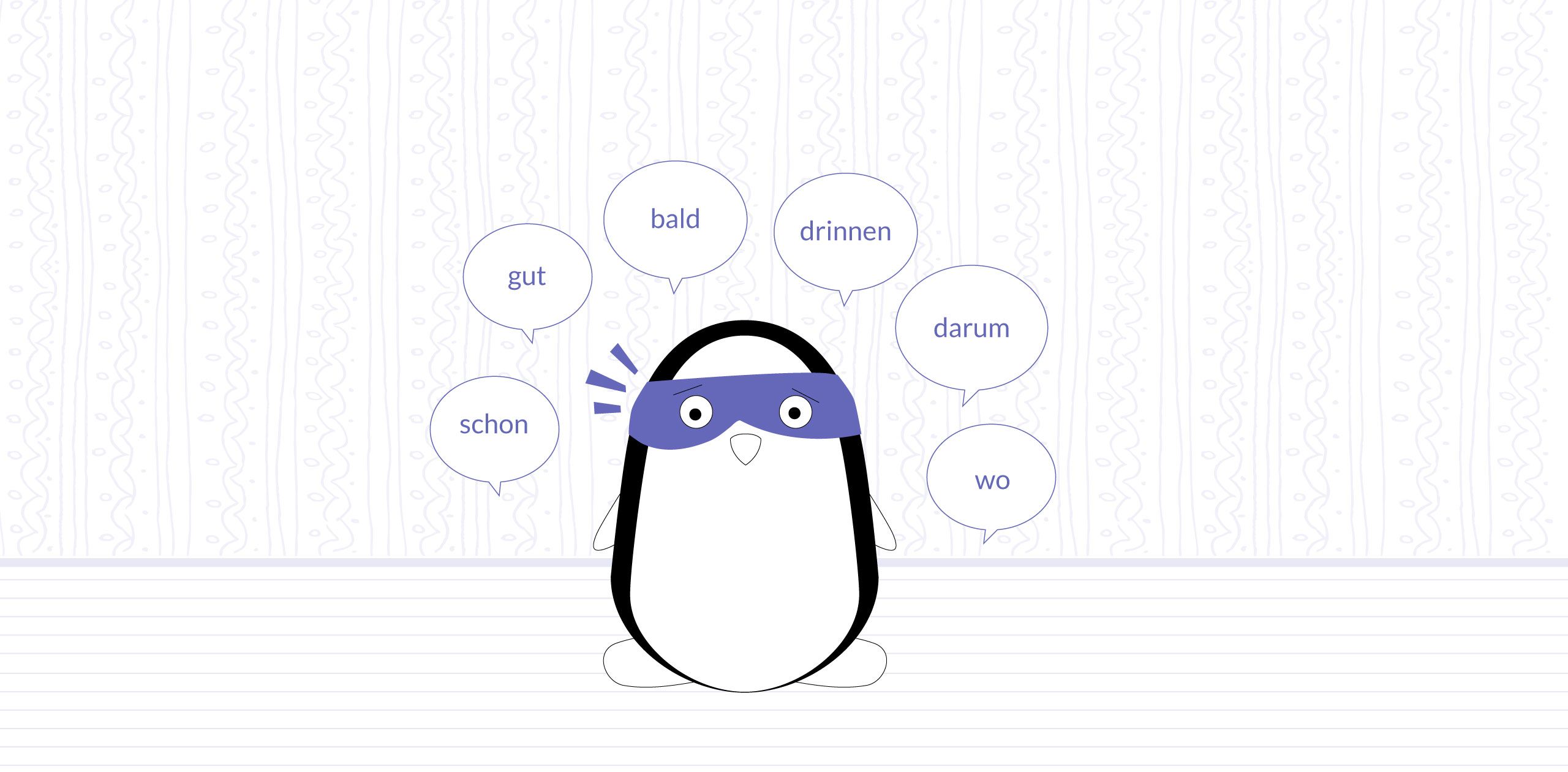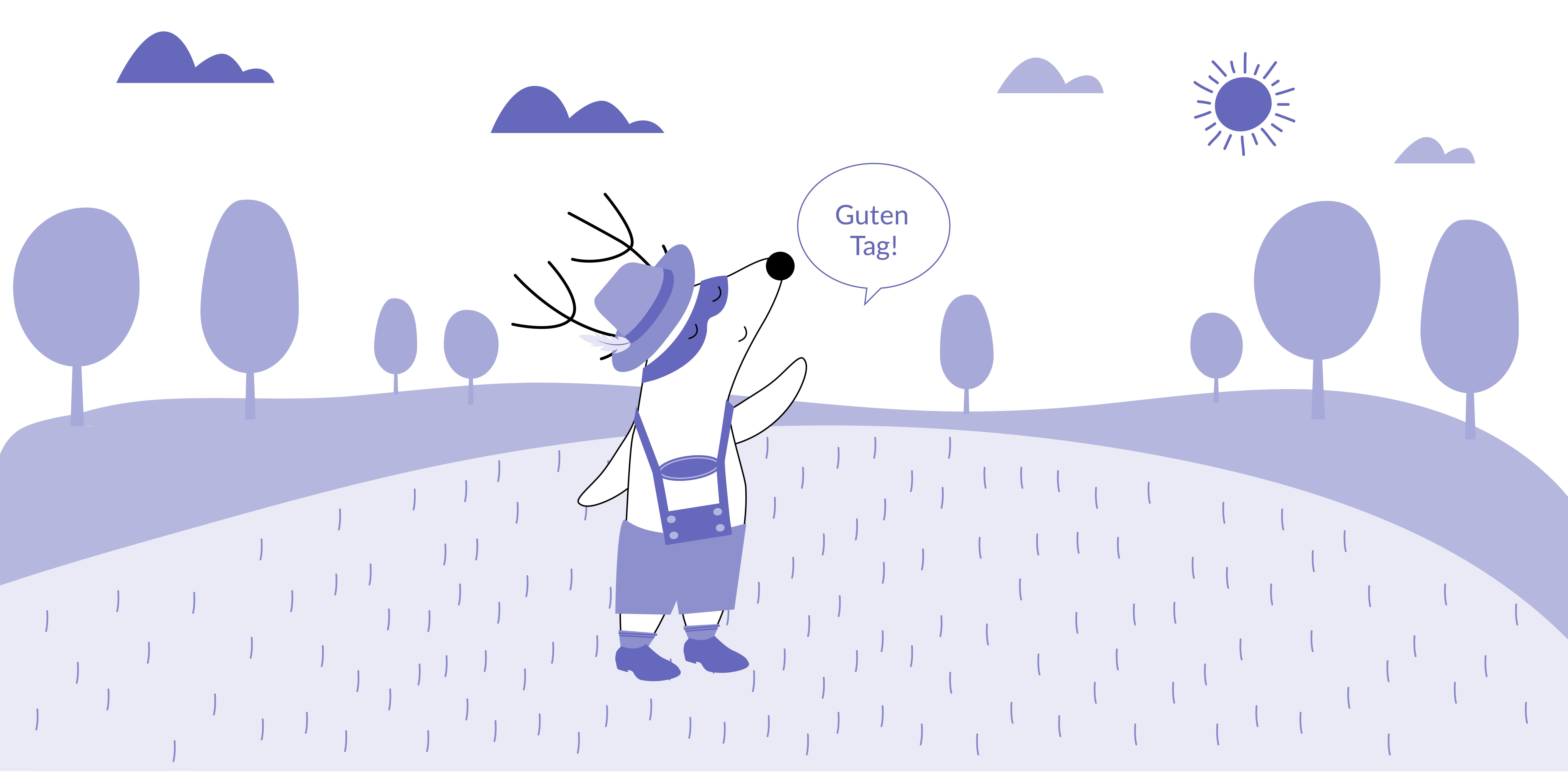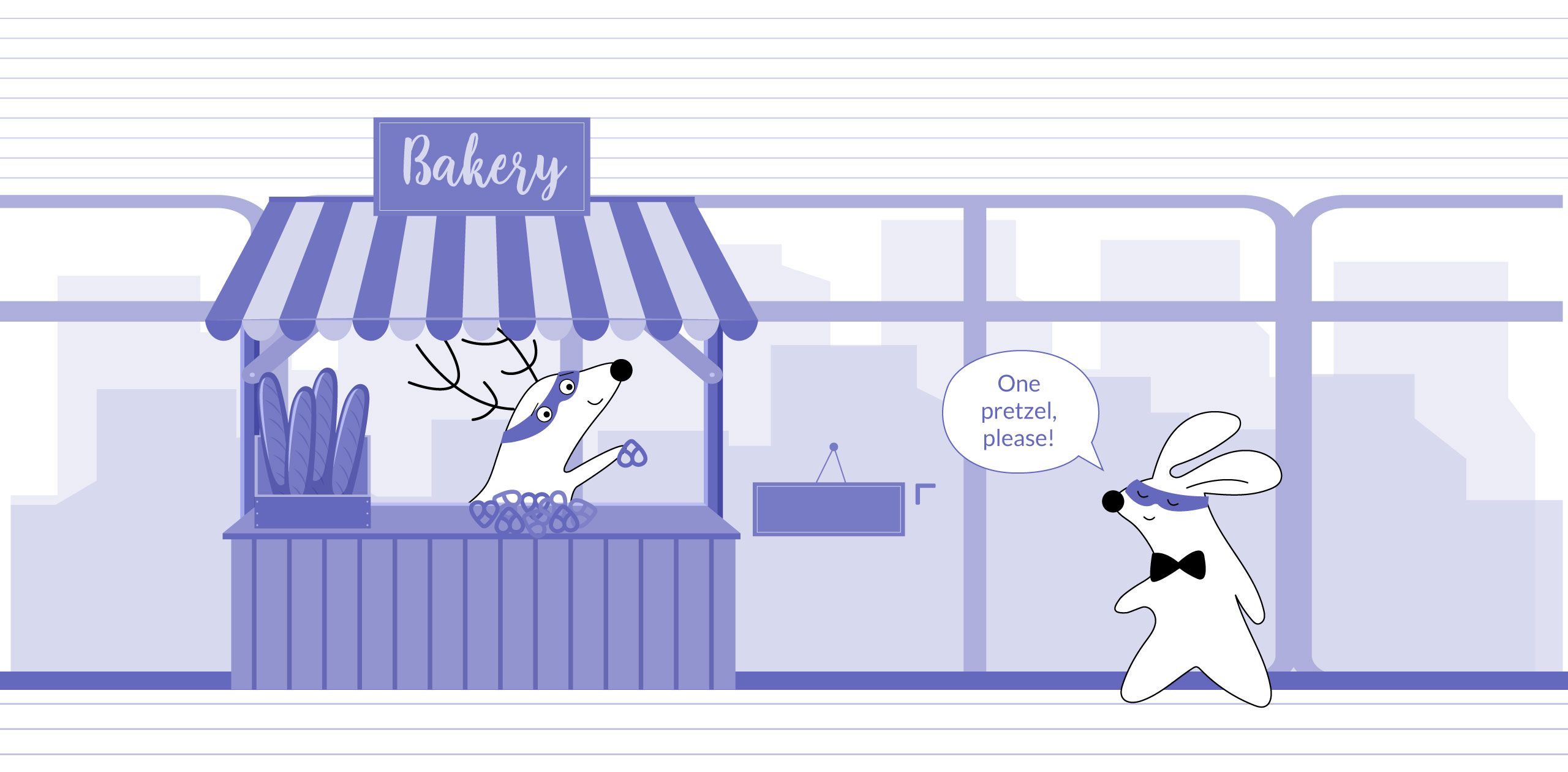
German has always been one of the most influential languages in the world, due to its long history and rich culture. Over time, many German words have made their way into other languages – including English. Today, there are more than 1,000 German loanwords in the English language, and many English speakers don't even realize it.
Some of these words are quite common, such as "angst", "lager", and "pretzel". However there are others that are a little less well-known. Learning these words is easy and can add some flair to your vocabulary. So let's take a look at 20 of the most interesting German loanwords in English to boost your knowledge of English as well as the German language. Read on!
Learn German with Langster
Angst
Angst (noun): fear, anxiety
The German word angst originally meant "fear" or "anxiety". Today, it is sometimes used in the English language to refer to a feeling of fear or dread but more often, it describes a feeling of nervousness or worry, often caused by our reaction to things we find overwhelming, or that are out of our control. Teeangers most often feel agnst.
You can, for example, “get angsty” because your innocence is slipping away and you’re getting a lot of responsibilities, but you don’t yet have the autonomy of an adult.
Kindergarten
Kindergarten (noun): a school for young children
This word comes from the German word Kinder (children) + Garten (garden). In German, kindergarten refers to a preschool or nursery school but in English, it has come to mean the grade of young children before they start elementary school, usually aged between four and six.
The concept of kindergarten was first introduced in the early 1800s by German educator Friedrich Froebel. He believed that all children are creative and should be given the opportunity to explore their natural abilities through play.
Pretzel
Pretzel (noun): a type of baked bread typically made into a knot shape
You may have bought one of these off a street food vendor. The word pretzel is derived from the German word Brezel, which in turn comes from the Latin word bracellus, meaning "little arms" or "bracelets". Pretzels were first mentioned in German texts dating back to the 1100s.
Pretzels are a popular snack food in many countries and come in a variety of shapes and sizes. They can be sweet or savory and are often served with mustard or cheese.
Diesel
Diesel (noun): a type of internal combustion engine
You see this word at every gas station. The diesel engine was invented by and named after German engineer Rudolf Diesel in the late 1800s. It is a type of internal combustion engine that uses compression to ignite the fuel rather than a spark plug.
Diesel engines are more efficient than gasoline engines and are commonly used in heavy vehicles such as trucks and buses. The name diesel is used not only in English and German, but in numerous other languages as well.
Iceberg
Iceberg (noun): a large mass of ice floating in the ocean
It’s what sank the Titanic. The word iceberg is derived from the German word Eis (ice) + Berg (mountain). The first recorded use of the word in English was in the early 1800s, and since then, it has been commonly used by English speakers.
Wunderkind
Wunderkind (noun): a child prodigy
This word comes from the German Wunder (wonder) + Kind (child). A “wunderkind” is a child who is extraordinarily gifted or talented in a particular area, such as music, art, or sports.
The term is often used pejoratively to describe someone who was successful at an early age but then fails to live up to their potential.
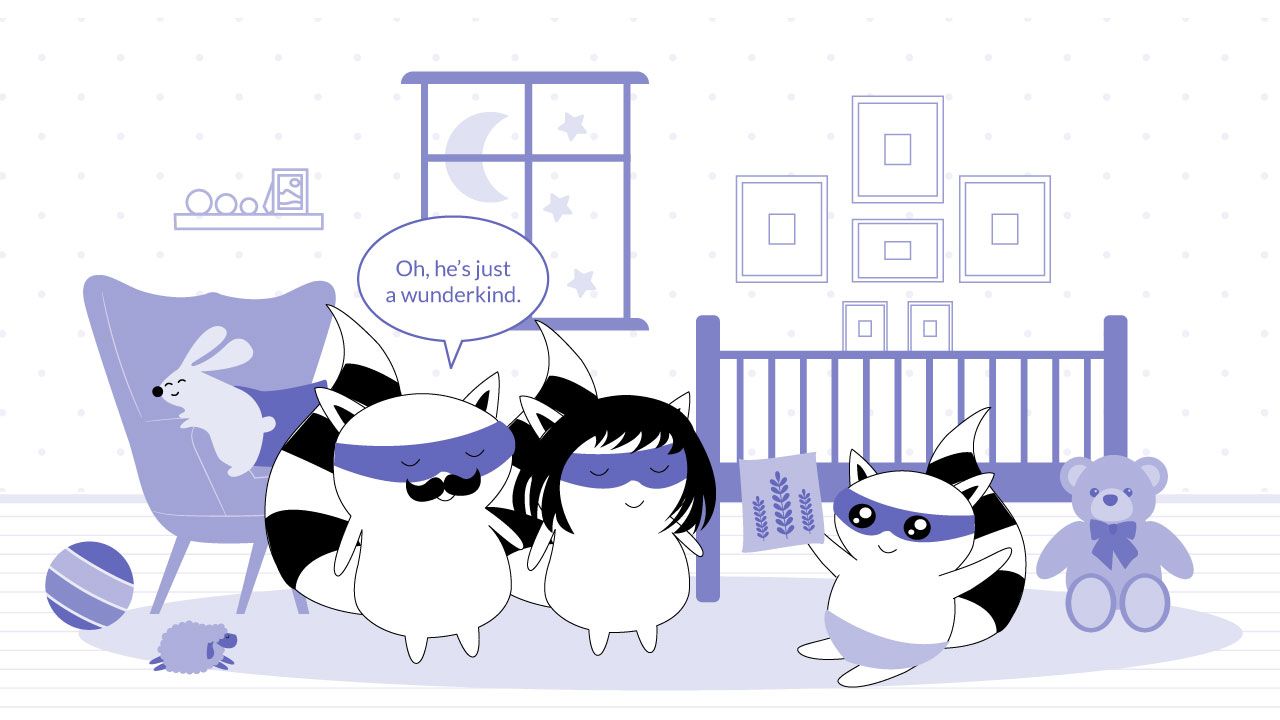
Pilsner and Lager
Lager (noun): a type of beer that is fermented at low temperatures
Pilsner (noun): a type of pale lager beer
These are two words any beer lover needs to know. You can commonly hear these words during Oktoberfest, but you’ll also hear it in bars, clubs, and among beer fans. The word “lager” comes from the German word Lagerbier, which means “warehouse beer”. Lager is a type of beer that is fermented at low temperatures and has a clean, crisp taste.
Pilsner, on the other hand, is a type of pale lager beer that was first brewed in the German city of Plzeň (which is now located in the Check Republic) in 1842.
Ersatz
Ersatz (noun): a substitute or replacement for something
The German word ersatz originally meant "substitute" or "replacement". It is now used in English to describe anything that is used as a replacement for something else, often of lower quality.
For example, you might buy an ersatz lamp if the original one breaks and you can't afford a new one. Or you might use ersatz sugar if you're out of the real thing and need to sweeten your coffee.
Fest
Fest (noun): a party or celebration, usually with food and drink
During summer, you’ll probably see a lot of events using this word. Fest comes from the Latin word festus, which means "feast" or "holiday" – but originally, it has several meanings, even “firm” or “set” when used as an adjective. In English, however, the word is used to describe any kind of party or celebration, often centered around food and drink.
For example, an event centered around the cultivation and cooking for garlic might be called “Garlic Fest.”
Doppelganger
Doppelgänger (noun): a person who closely resembles another person
The German word Doppelgänger comes from the words doppel (double) + Gänger (goer). A doppelgänger is a person who physically resembles another person. People mostly use the word to describe a ghostly double of a person. In English, people use it in a joking way to describe someone who looks like you or someone you know.
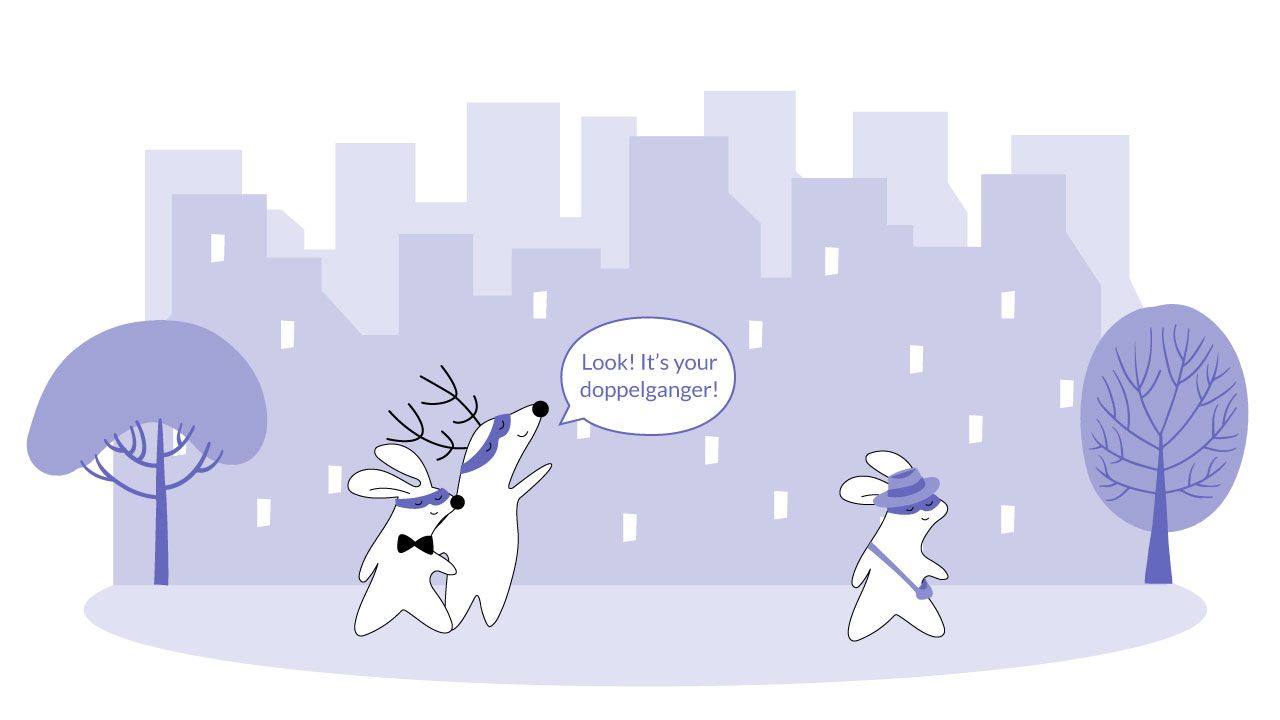
Poodle
Poodle (noun): a dog breed
While people typically think of poodles as French, they actually get their name from German. The word “poodle” is derived from the German word pudel, meaning "to splash in water". The Pudel is a type of water dog that originated in Germany. It is a popular breed in many countries and comes in three different sizes: Standard, Medium, and Miniature.
Blitzkrieg
Blitzkrieg (noun): a fast, aggressive military campaign
You probably know this word from history class. The word “blitzkrieg” is a combination of the German words blitz (lightning) and krieg (war). It was first used during World War II to describe the German military's strategy of rapid, concentrated attacks against enemy targets.
Its shortened version, "blitz" is also an American or Canadian football term. It describes a playing strategy where the defense sends more players than the offense can block.
Kitsch
Kitsch (noun): art or objects that are considered to be of poor taste
“Kitsch” comes from the German word kitzen, meaning "to decorate". It was first used in the late 1800s to describe cheaply made or garish works of art.
Today, people use “kitsch” to describe things that are considered to be cheesy or in bad taste, such as tacky souvenirs, oversized jewelry, or gaudy décor.
Uber
Uber (adjective): superior, excellent
It’s more than just an app. The German word uber originally meant "over" or "above". It was first used in English in the early 1900s, but since the rise of the rideshare app of the same name, it has been gaining popularity in English.
“Uber” is mostly used as a prefix to an adjective, as in "That meal was uber-delicious!", or "He's an uber-successful businessman."
Hamburger
Hamburger (noun): a sandwich consisting of a bun, patty, and toppings
The famous hot sandwich “hamburger” is derived from the German city of Hamburg. The first recorded mention of the hamburger in a sense of the sandwich appeared somewhere between 1885-1895 in the US.
It is believed that the name of the burger has a long history: in the 1600s, the raw minced meat was found to be a delicacy in Hamburg. In the 1800s, the meat from the German Hamburg cows was mixed with garlic, onions, salt, and pepper and formed into patties, known as “Hamburg steaks.”
Finally, as German immigrated to the US, they brought the recipe with themselves, selling Hamburg steaks in the first restaurants run by German immigrants.
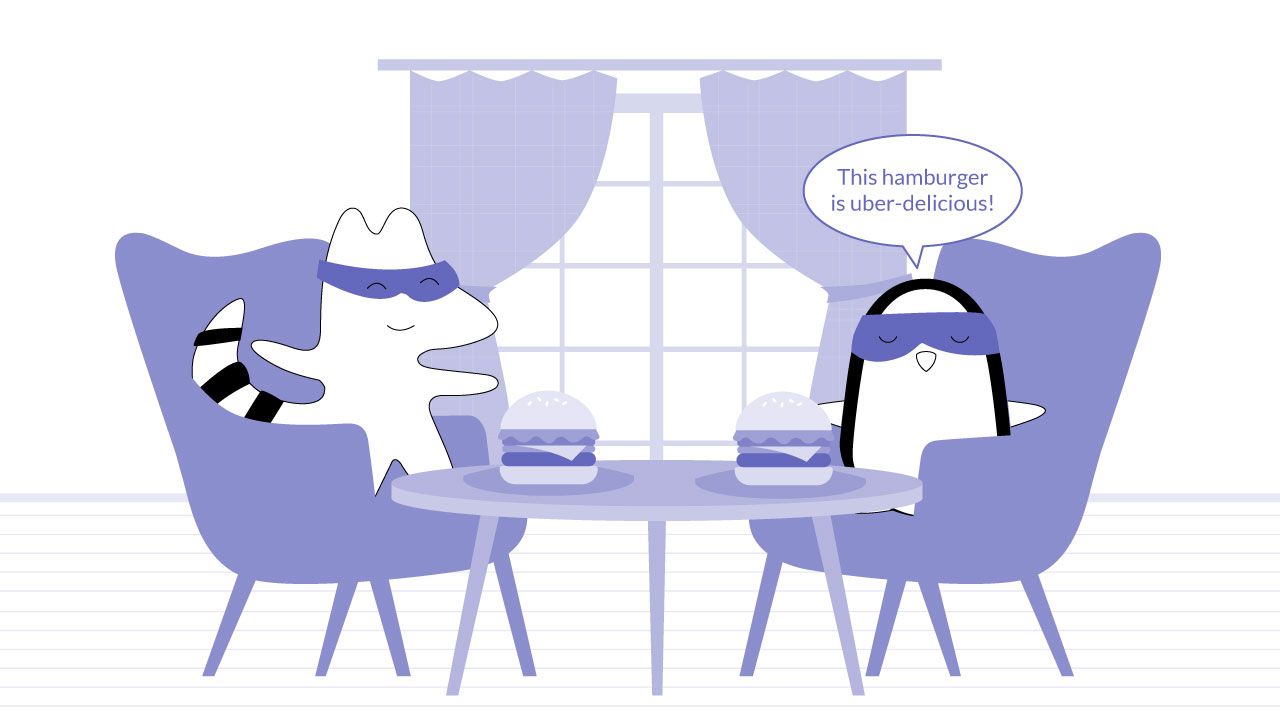
Wanderlust
Wanderlust (noun): a strong desire to travel
The word “wanderlust” comes from the German words wandern (to hike) and lust (desire). People use it to describe a burning desire to travel and explore the world – or it can be used more broadly to talk about a longing for adventure or excitement.
Sauerkraut
Sauerkraut (noun): fermented cabbage
Do you like this on your hot dogs? The word sauerkraut is derived from the German words sauer (sour) and kraut (cabbage). Sauerkraut is a popular dish in many Central and Eastern European countries. It is traditionally made by fermentation of cabbage and other vegetables, such as carrots, turnips, and onions. If you end up drinking too much in Germany, this is a great hangover cure as well.
Neanderthal
Neanderthal (noun): a prehistoric human from the Pleistocene Epoch
Interested in our early ancestors? The word “Neanderthal” (modern German spelling: Neandertal) is derived from the German valley of Neander, where the first Neanderthal fossils were discovered in 1856. The name itself means "valley man".
Neanderthals were a species of Homo sapiens that lived in Europe and Asia during the Pleistocene epoch (approximately 2.6 million to 28,000 years ago). They are best known for their large skulls and stocky build.
Strudel
Strudel (noun): a pastry made of thin layers of dough filled with fruit or other ingredients
If you’re looking for a tasty treat, you’ll want to know this word. “Strudel” comes from the German word stollen, meaning "stuffed". Strudel is a traditional Austrian and German pastry. It is made by layering paper-thin sheets of dough, which are then filled with sweet or savory fillings such as fruit, cheese, nuts, or meat. This is definitely one of the most popular German desserts around the world.
Final Thoughts on German Words in the English Language
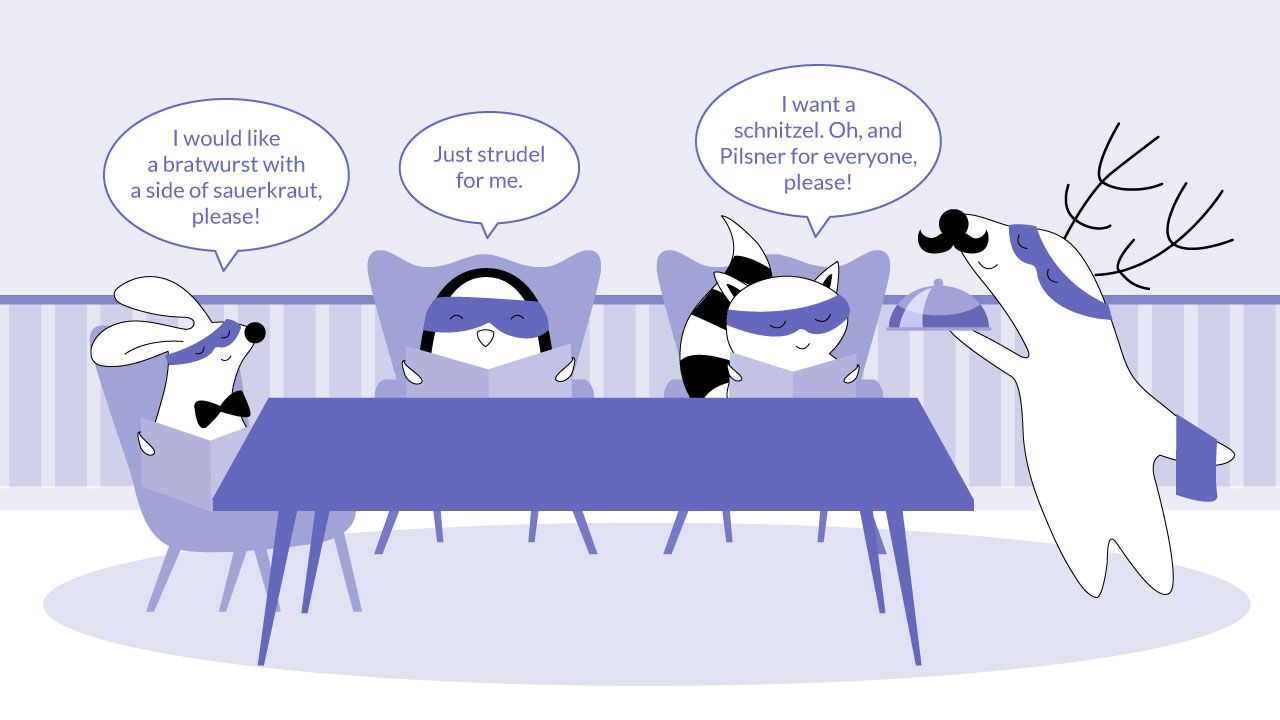
It's really interesting to see how many words in the English language actually have German roots. While speaking German may be a challenge, learning these words can be a fun and interesting way to spice up your vocabulary.
Moreover, these words are a great example of how much common ground German and English really have – and that it’s not so hard to learn German for the English speakers the other way round.
So, what are you waiting for? Learn these English words derived from German first, and then move to the more specific German vocabulary. Who knows, maybe you’ll become fluent in German in no time – and include these 19 words in your conversations with native German speakers.







